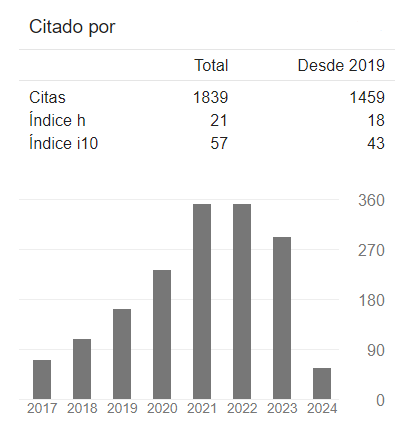The Catholic Tradition, its Influence in Shaping the Role of Women in the Traditional Colombian Family and its Relationship with Partner Violence Within
DOI:
https://doi.org/10.24142/raju.v14n28a8Keywords:
Woman, tradition, partner violence, catholicism, patriarchal scheme, discriminationAbstract
According to the National Institute of Legal Medicine and Forensic Sciences in its report Forensis 2017, Data for life, the facts of discrimination and violence against women in Colombia, have increased in recent years; This situation could be cataloged as a product of a society that has been shaped from the machista and patriarchal scheme that characterizes societies that have been influenced by traditions, such as the Catholic religion, which in some of the stories of their sacred texts seem to justify the condition of domination exercised by men over women. The Colombian State, which in its normative beginnings were influenced by this tradition, from the constitution of 1991 and through its subsequent regulations, has sought not only the vindication of women, but to punish the aggressors; However, these measures have not been efficient as long as the laws have not been able to guarantee women a true environment of security and respect for their fundamental rights. For this, it is necessary to intervene the configuration of the Colombian culture, in order to modify the cultural bases on which this imaginary social tradition that perpetuates the structure of domination and discrimination against women was built.
References
Cardona, G. y Onofre, D. (2017). El feminicidio y las representaciones sociales de ser mujer. En Forensis 2017. Datos para la vida (pp. 527-544). Bogotá: Imprenta Nacional de Colombia.
Céspedes, L. (2011). ¿Cómo mira el Estado? Constitución de 1991 y compromisos de género del Estado colombiano. Revista de Estudios Sociojurídicos, 390- 417.
Consejería Presidencial para la Equidad de la Mujer (2018). Seguimiento a la implementación de la ley 1257 de 2008. Serie de Informes al Congreso, 2016-2017. Recuperado de http://www.equidadmujer.gov.co/ejes/Documents/Informe-Congreso-Ley-1257-2016-2017.pdf
Cook, E. (2012). Israel. La cultura religiosa de las mujeres: una mirada desde el Antiguo Testamento. Recuperado de https://issuu.com/ubluniversidad/docs/aporb__bno14_ecook
Crochetti, S. (2004). Ser madre, ser mujer, ser humana, las mujeres en antiguo Israel. Las políticas natalistas y la legitimación religiosa. Revista La Aljaba, (IX), 175-188.
Durkheim, E. (1974). Las reglas del método sociológico. Madrid: Ediciones Morata.
Geldres, D. V. (2013). Hombres cuidadores de vida: modelo de sensibilización y formación en masculinidades género-sensiles y prevención de las violencias hacia las mujeres. Medellín: Universidad CES.
Instituto Nacional de Medicina Legal y Ciencias Forenses (INMLCF) (2018). Forensis 1017: datos para la vida. Bogotá: Grupo Centro de Referencia Nacional sobre la Violencia.
Jáuregui, I. (2006). Mujer y violencia. Nómadas, 13(1).
Munévar, D. I. (2011). Delito de feminicidio. Muerte violenta de mujeres por razones de género. Revista de Estudios Sociojurídicos, 390-417.
Oddone, C. (2017). Poner el foco en los hombres para eliminar la violencia contra las mujeres. Revista CIDOB d'Afers Internacionals, 145-169.
Organización de las Naciones Unidas (2015). Las mujeres en Colombia. Recuperado de http://colombia.unwomen.org/es/onu-mujeres-en-colombia/las-mujeres-en-colombia
República de Colombia (1991). Constitución Política de Colombia. Gaceta Constitucional 116. Recuperado de http://www.secretariasenado.gov.co/index.php/constitucion-politica
Saavedra, M. (2010). Los Collegia y la religión judía: un análisis del papel de las mattres synagogae en el occidente romano. Stidia Histórica: Historia Antigua.
Saceda, L. (2010). Importancia del discurso religioso e impronta de la Biblia en la gestación de la violencia de género. Revista de Inquisición (Intolerancia y Derechos Humanos), 14, 305-326.
Published
How to Cite
Issue
Section
License
La rivista consente all'autore (s) di mantenere i diritti di pubblicazione senza restrizioni.
Le journal permet à l'auteur (s) de conserver les droits de publication sans restrictions.
The journal allows the author (s) to retain publication rights without restrictions.
La revista le permite al autor(es) retener los derechos de publicación sin restricciones
Die Zeitschrift ermöglicht es dem / den Autor (en), Veröffentlichungsrechte ohne Einschränkungen zu behalten.
A revista permite que os autores mantenham os direitos de publicação sem restrições.











































